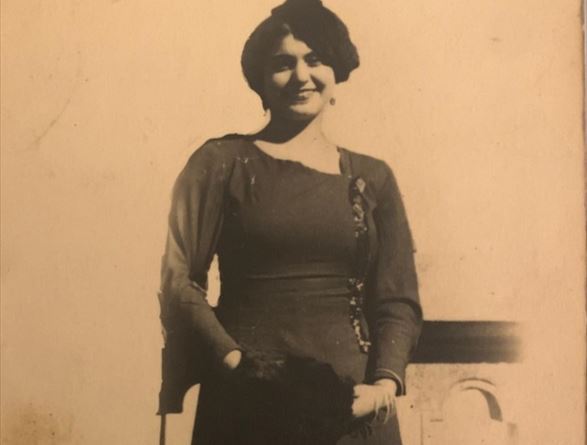Since the beginning of the year, the Palermo journalist Salvo Palazzolo (correspondent for the newspaper The Republic) lives under escort, also due to the reporting articles on the entrepreneur mafia and the mafia bourgeoisie.
Winner of the “Mario Francese journalistic prize”, Palazzolo is the author of the recent investigation novel Love in this citypublished by Rizzoli. The compelling volume narrates the forgotten and censored story of Cetti Zerilli, Palermo student of the Faculty of Letters, killed in 1935, in the university premises.
Why has the killing of the Palermo student Cetti Zerilli have been made?
«Nobody in Palermo knows the story of Cetti Zerilli, found a corpse at the University on September 17, 1935, killed with three pistol shots. Next to her, there was the body of a black shirt man and boots. The police hastened to say that it was a murder-suicide and the censorship was imposed on the matter. But from the start immediately Cetti’s father presented exposed to the judiciary, calling into question a fascist hierarch and clearly speaking of a staging compared to that scene of the crime “.
What could have involved the truth for fascism on that disturbing femicide within the University of Palermo?
«The story I discovered leads straight to the intrigues of fascist power in Palermo. Cetti had discovered something, threatened to report him publicly. That’s why it was so urgent to delete the name and story of a girl. But even after the war no one wrote about her, I wondered why. Probably, some of the protagonists of the sidetrack and abandonment had managed to recycle himself in republican Italy ».
What documents on the Zerilli case did you find in the archives and libraries?
«To talk to me about the murder at the University was an old Palermo reporter, Aurelio Bruno, the journalist who made the scoop on the coffee at the Stricnina of Gaspare Pisciotta, the lieutenant of the bandit Giuliano. He talked to me twenty years ago, but the name of the young killed, nor did he specify when the crime had not happened. At the time I found nothing, I told him to Aurelio Bruno, and he reproached me: “How is it possible that you could not reconstruct such a striking story?” There was really nothing in the newspapers. And I didn’t know where to search. Only recently, did I find some acts of an investigating judge and a policeman who tried to investigate the state archive to the state archive, but soon they were stopped ».
After the fall of fascism, 80 years of mysteries of Republican Italy followed one another. What are the missing pieces?
«In Palermo many words disappeared immediately after the excellent murders. Some letters of Cetti Zerilli also pierced. Many years later, the notes of the policeman Nino Agostino, the diary of Giovanni Falcone, the red agenda of Paolo Borsellino, disappeared. There was the method in the excellent crimes of Palermo: it was not enough to kill brave men, it was necessary to erase their reflections, their intuitions “.
How does a chronicler live under escort?
«I keep telling Palermo as always I did, on the streets of the city. The only way I know to be a journalist, in contact with people’s stories. Stories of small great heroes who commit themselves to change in everyday life ».
In recent months you have received the Mario French prize, named after the courageous chronicler killed in January 1979. What example did Mario French gave Italian journalism?
«Mario French, valiant chronicler of Giornale di Siciliaincluding the attack of the new bosses first, the Corleonesi of Salvatore Riina and Bernardo Provenzano. It understood that the mafia organization was changing skin and relationships, but its articles were not fully included by the company, by the institutions. I have the feeling that even today there is a dangerous underestimation of what is currently the mafia phenomenon. The mafia no longer makes news, and instead I believe it is still insidious because it infiltrates in silence in society, economy and politics “.
Palermo prosecutor Maurizio De Lucia spoke of a powerful mafia bourgeoisie, concept introduced by scholars Mario Mineo and Umberto Santino in the seventies.
«The latest police and carabinieri investigations tell of a piece of Sicilian society that continues to look for the mafia. Some entrepreneurs asked bosses to recover credits, others to have the monopoly of a certain product. Some politicians instead asked for electoral support. Professor Salvatore Lupo had spoken a time of the “need of mafia”, a category that found a dramatic confirmation. It is therefore necessary to continue to feed the cultural commitment against the mafia. How it is necessary to continue looking for the truth about many martyrs still without justice ».








